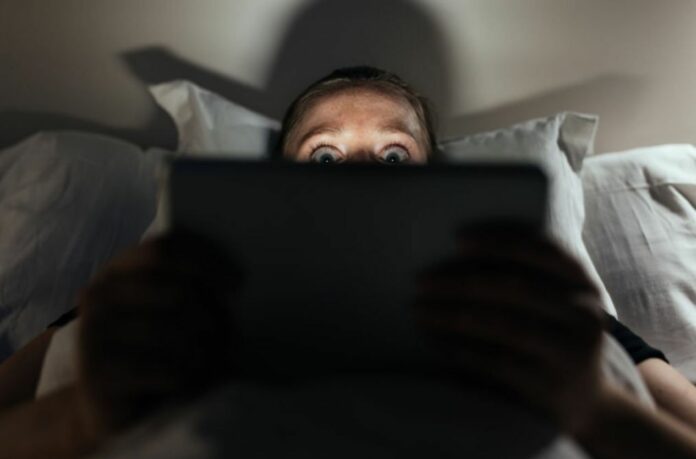A recent study from the University of Fribourg has challenged traditional beliefs about the impact of horror and thrillers on sleep. The study, which recruited 50 young adults, found that watching suspenseful television shows before bed can actually aid in falling asleep, despite containing cliffhangers.
These findings suggest that the choice of evening programming may not be as crucial as previously thought when it comes to getting a good night’s sleep.
The study divided participants into two groups: one group watched suspenseful shows on Netflix, including How to Get Away with Murder, Orphan Black, Sense8, and The Sinner, while the other group watched the documentary Islands of the Future, which follows coastal communities addressing energy challenges.
Researchers monitored stress levels by tracking heart rate and cortisol levels and surveying participants’ self-reported stress levels at various times throughout the study.
The study found that while stress levels rose among those who watched suspenseful TV shows, this did not negatively impact their sleep quality.
The research found no significant difference in total sleep time or the number of awakenings between groups. In fact, the study revealed that participants fell asleep faster after watching suspenseful shows with cliffhanger endings, compared to a neutral program.
As per the study data, participants who watched a thriller with a cliffhanger ending fell asleep after an average of 19 minutes and 13 seconds, while the control group took 21 minutes and 20 seconds to fall asleep.
The study also found that for non-cliffhanger episodes, participants fell asleep in an average of 18 minutes and 51 seconds after watching a suspenseful show, compared to 18 minutes and 39 seconds for the documentary.
The researchers found that “objective sleep parameters,” such as “sleep efficiency, total sleep time, wake after sleep onset,” and proportion of REM sleep, were not affected by watching suspenseful TV shows.
In fact, the study found that participants fell asleep faster “after watching three hours of a suspenseful TV series” compared to a non-suspenseful documentary. The researchers concluded that “sleep onset latency (SOL) showed the opposite result pattern.”
The data revealed that when cliffhangers were involved, participants experienced an increase in heart rate and cortisol levels, which are common indicators of stress.
Despite this, the study found that participants in the cliffhanger group also fell asleep faster after watching suspenseful TV shows compared to non-suspenseful documentaries.
Therefore, the researchers concluded that the “arousal induced by suspenseful TV shows, with or without cliffhangers, does not” negatively impact objective or subjective sleep quality in healthy young adults.
The researchers suggest that the suspenseful Netflix shows may have been more engaging for the participants, which may have led to a more positive impact on sleep. In contrast, the documentary may have caused feelings of boredom, frustration, and anger that are known to negatively affect sleep.
“If the documentary was not interesting or exciting for the subjects,” the team writes in the study published in the journal Sleep Medicine, “it might have elicited those negative affective states which might have delayed sleep onset.”
Image Credit: Getty
